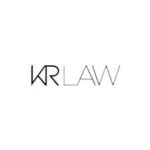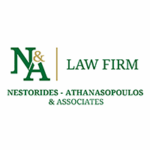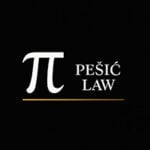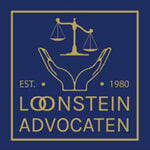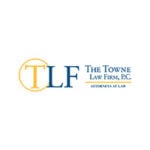-
What is the legal definition of gambling?
In Gibraltar we are expecting the enactment of a new Gambling Act within the coming months. The Gambling Bill 2025 (the “2025 Act”) has been published and is awaiting Parliamentary approval. Throughout this article we have referred to the provisions of the 2025 Act.
The 2025 Act defines ‘gambling’ as:
- betting (including pool betting) and bookmaking;
- gaming;
- lottery promotion;
- operating or keeping on any premises a gambling machine for the purpose of gambling on those or any other premises;
- offering moving reel games, slots or casino type games where there is a combination of free and paid options to participate and an opportunity is provided to participants to win a money or money’s worth prize,
but excludes social gambling.
This is a broader definition than the one under its predecessor Act, the Gambling Act 2005.
The definition of “betting” means making or accepting a bet on–
- the outcome of a race, competition or other event of any description;
- the likelihood of anything occurring or not occurring; or
- whether anything is or is not true,
but does not include any bet made or stake hazarded in the course of or incidental to any gaming and the expressions bet, betting and bookmaking shall be construed accordingly.
The definition of “gaming” means playing a game of chance for a prize.
-
What legislation applies to gambling? Please provide a summary of the legal/regulatory framework.
The 2025 Act will be the principal governing statute for gambling activity in Gibraltar. The 2025 Act is designed to overhaul Gibraltar’s gambling regulatory framework and bring it up to speed with the current practices of the gaming industry. The Act introduces key changes, including:
Broader Regulatory Scope & Triggers for Licensing
- An expanded definition of ‘regulated activities’ (which now includes marketing, conducting, managing or providing facilities for remote gambling, content aggregation, holding of interests in gambling entities and other support services);
- Increased triggers for licensing. Previously the sole trigger requiring you to hold a remote gambling licence was having remote gambling equipment in the jurisdiction. These have been widened to include scenarios where a person or company from Gibraltar is responsible for remote gambling regardless of where in the world the gambling takes place;
- Personal accountability for senior staff, who must be approved as ‘Regulated Individuals’;
- More robust economic substance requirements whereby operators must demonstrate a ‘sufficient substantive presence’ in Gibraltar (for example through employees, physical offices, technical infrastructure and/or tax contributions);
- The 2025 Act lists specific scenarios where a person who would not normally be considered to be operating in or from Gibraltar will be treated as doing so:
- where the registered office or head office of the entity which carries out the regulated activity is not in Gibraltar, but the day-to-day management or decision making of the regulated activity is conducted from Gibraltar;
- where the registered office of the entity which carries out the regulated activity is in Gibraltar, or if there is no registered office, the head office is in Gibraltar, and the activity is carried on from an establishment maintained in a country or territory outside Gibraltar; and
- where the entity which carries out the regulated activity outside of Gibraltar provides facilities for remote gambling to, or for the benefit of, a Gibraltar licence holder.
However, scenario c) will not apply:
- where the facilities are provided to the licence holder by a company that is a member of the licence holder’s group;
- if the facilities are not critical to the remote gambling; and/or
- to third party software providers who supply content to licensed B2B aggregators in Gibraltar
Oversight and Enforcement
- Expanded powers for the Gambling Commissioner
- The creation of a Gambling Appeals Tribunal
The 2025 Act will replace the Gambling Act 2005, but there will be transitional provisions in place for a 6-month period following the enactment of the 2025 Act. Existing licensees will be automatically treated as licensed under the new Act until a new licence is issued which they are required to obtain within the transitional period.
Entities which did not previously require a licence but are now caught by the New Act, will be treated as holding a transitional licence for a period of 6 months. A transitional licence holder will be required to submit an application for a full licence and have a licence granted by the Licensing Authority within the 6-month period. The validity of the transitional licence shall be extended until the application has been considered, and either the full licence granted or the application rejected.
-
Which body/ies regulate gambling?
The regulation of all licensed gambling activity falls within the remit of the Gambling Commissioner and their regulatory team. The Gambling Commissioner is appointed by the Minister for Gambling, whose office extends to the role of the licensing authority (the “Licensing Authority”), and is required to ensure that operators holding licences act within the terms of their licence agreements and the Act, and in a way that maintains the good reputation of the jurisdiction.
In connection with the Act, the Gambling Commissioner has issued various Codes of Practice (the “Codes”) for the gambling industry that specify detailed requirements to be met by remote and non-remote licence holders in Gibraltar; these Codes can be found on HM Government of Gibraltar’s website.
-
Are licences available? If so: a) What is the duration of a licence? b) What types of licences are available? c) Are there different types of licences for B2C and B2B operators? d) Do software suppliers need to be licensed?
What is the duration of a licence?
Licences are granted for a fixed term, which is determined by the Licensing Authority at the time of issuance. The 2025 Act does not prescribe a uniform duration for all licences; instead, it allows flexibility based on the type of activity and other considerations.
To date, licences under the Gambling Act 2005 are typically granted for a period of five years, subject to renewal and ongoing compliance.
During the transition period, transitional licences are valid for a period of 6 months, subject to extension where a full licence application is submitted within this period.
What types of licences are available?
Licences may authorise one or more regulated activities, and/or one or more activities that constitute gambling:
Licences for remote gambling and non-remote gambling are separate.
The following are regulated activities which require licensing under the 2025 Act:
- B2C remote gambling;
- B2B remote gambling;
- B2C non-remote gambling;
- B2B non-remote gambling;
- betting Intermediary, betting exchange and/or betting agent; and
- Gambling Operator Support Services licence (GOSS): this covers providing marketing services for gambling, a holding entity for gambling carrying on business elsewhere, holding or managing customer funds (other than licence holder or financial institution) and such other activities as the Minister may prescribe.
Are there different types of licences for B2C and B2B operators?
Yes there are, please see a full list of the regulated activities in our answer to b. above.
Do software suppliers need to be licensed?
Yes, software suppliers will only be able to provide services to Gibraltar-based B2C’s either via direct integration (requiring a B2B licence) or via a Gibraltar-licensed aggregator.
-
Are any types of gambling products prohibited?
Yes – if not included as one of the regulated activities listed above.
-
What is the headline application procedure? Please include any eligibility and other application requirements, including approximate application costs and any need to establish a local presence.
Licensing application and processing will depend on the type of licence being sought. In general terms, the applicant will need to prove their reputation, provide a business plan and demonstrate their skills in the sector. The investment in the jurisdiction and local plans will be very relevant in the assessment to be made by the Licensing Authority.
Under the 2025 Act, there are increased substance requirements, and ‘sufficient substantive presence’ is required. The Licensing Authority will take into account the following matters:
- the nature, extent, purpose and usage of the remote gambling equipment located or to be located and maintained in Gibraltar;
- the number and nature of jobs to be created and maintained in Gibraltar;
- the amount of tax revenue that will accrue or is accruing to the Government; and
- such other factors as appear to the Authority to constitute a sufficient substantive presence in Gibraltar.
Such other factors will include consideration of the individuals managing the business and with key technical equipment and infrastructure in the jurisdiction.
Licence application fees are expected to be payable in two stages, with the first half payable at the start of the pre-licensing stage, and the second half payable upon submission of the formal licence application.
-
Do individuals within the business need to be personally licensed or authorised? If so, please provide headline requirements.
Yes, key individuals will be required to obtain a Regulated Individual licence as noted at point 2 above.
-
Is advertising of gambling permitted and, if permitted, how is it regulated?
Under the 2025 Act, advertising is now a regulated activity that requires a licence, specifically a Gambling Operator Support Services (GOSS) licence, unless it falls under a narrow exemption.
The Act defines marketing activity as:
“Conducting, managing, arranging, booking, facilitating or providing advertising or marketing services for gambling, wherever in the world the gambling takes place, except for exempt advertising or marketing”.
The scope includes international campaigns, affiliate marketing, and promotional services.
Advertising is exempt from licensing only if it is primarily intended for an audience in Gibraltar, and/or the person conducting the advertising is in the business of advertising or marketing and not already part of a gambling group which is separately licenced in Gibraltar.
-
Are marketing affiliates permitted? If so, are they licensed or regulated?
Yes, as per point 8 above they are permitted, but marketing affiliates are now regulated where they conduct, manage, arrange, book, facilitate or provide advertising or marketing services for gambling, and do so in or from Gibraltar.
Such affiliates must obtain a GOSS licence unless they fall within the narrow exception outlined below. This applies even where the affiliate is part of a cross-border structure, and the marketing targets audiences outside Gibraltar.
Marketing affiliates may be exempt if and only if they are in the business of advertising and marketing, and their services are primarily intended for an audience in Gibraltar.
-
What are the penalties for offering, facilitating or marketing unlawful gambling, and can the gambler be penalised for participating in unlawful gambling?
Such activities fall under the “general prohibition” under the Act: where the carrying on of regulated activities in or from Gibraltar without a licence is prohibited. Contravention of the “general prohibition” is a criminal offence. It is the operator (or its representatives) that will fall foul of the law.
Penalties under the 2025 Act include:
- Fines – the Gambling Commissioner now has increased powers to impose financial penalties;
- Suspension or revocation of licences;
- Criminal prosecution: on summary conviction, to imprisonment for six months, or the statutory maximum fine, or both; or, on conviction on indictment, to imprisonment for two years or a fine, or both.
-
Briefly detail key requirements for licensees.
See point 6 above.
-
Briefly detail key anti-money laundering requirements.
The European Commission’s anti-money laundering arrangements (including counter-terrorist financing) in the Fourth Anti-Money Laundering Directive have been transposed into Gibraltar law. The overarching legislation in relation to AML requirements is as set out in the Proceeds of Crime Act 2015 (the “2015 Act”), which consolidates established and new obligations. The Codes of Practice issued by the Gambling Commissioner relating to anti-money laundering input the requirements of the 2015 Act and other international obligations.
These requirements apply to all financial transactions associated with defined gambling activities carried out by licence holders. Detailed guidance is also provided in respect of considerations specific to remote licence holders and non-remote casino licence holders.
With regards to remote gambling, the Act and the Gambling Commissioner’s Code of Practice specify that a licence holder may take all reasonable and proportionate steps in relation to a customer’s account should it become aware, or have reason to suspect, that the customer has obtained a benefit by any illegal conduct, including the immediate suspension or closure of that account. Licence holders must notify the Gambling Commissioner in writing, within twenty-four hours or as soon as reasonably practicable, of any alleged money laundering; any resulting investigation carried out by the Gambling Commissioner, Financial Intelligence Unit or any other law enforcement body requires the co-operation of the licence holder.
In addition, the licence agreements entered into by online operators and the Licensing Authority require a licence holder to confirm that it fully understands and will comply with the anti-money laundering obligations under Gibraltar law and the guidelines published by the Gambling Commissioner.
-
Briefly detail key responsible gambling (or safer gambling) requirements.
The Licensing Authority and Gambling Commissioner impose firm rules relating to responsible gambling and the prohibition of underage gambling. The Codes of Practice state that licence holders must provide self-exclusion facilities for their customers. Customer requests for self-exclusion should be implemented by the licence holder as soon as practicable and once the ban is implemented, the operator should prevent the customer from using all known existing accounts under its control. Furthermore, the customer will be prevented from opening new accounts using the same or similar registration details.
In the case of remote licence holders, there is a requirement that operators make information available online to customers in respect of responsible gambling practices, usually by way of a clear link on their website to responsible gambling information, including details of organisations committed to tackling problem gambling; this should be provided in the language of the predominant users or intended users of the websites. Furthermore, with regard to non-remote licence holders, there should be pamphlets offered at the premises promoting responsible gambling.
In addition, operators are obliged to take reasonable steps to prevent minors from engaging in gambling activities; the minimum age for gambling in Gibraltar is 18. This age restriction requires online operators to ensure that the registration requirements for prospective consumers include a positive action on behalf of the consumer to acknowledge the age limit as well as providing their date of birth and the relevant registration details. In cases where a substantive reason to believe a customer is underage arises, the operator must ensure that gambling is suspended and no winnings are paid out.
-
Briefly detail shareholder reporting and approval threshold(s).
Under the 2025 Act, there are specific shareholder reporting and approval thresholds in relation to changes of control of licenced gambling entities.
Any person who decides to acquire or increase their control over a licence holder must give the Commissioner notice prior to the increase or acquisition.
A person is deemed to have increased their control over the licence holder if the percentage of shares or voting power they hold in the licence holder or a parent undertaking of the licence holder has increased by 10% since the Commissioner was last notified. In contrast, a person is deemed to have ceased to have control if their percentage of shares or voting power falls below the 10% threshold.
There is deemed to be a change of control over a licence holder if:
- the person holds 25% or more of the shares in the licence holder or its parent company;
- the person holds 25% or more of the voting power in the licence holder or its parent;
- the person has sufficient shareholding or voting power to exercise significant influence over the management of the licence holder.
-
Briefly detail the regulator’s enforcement powers, including sanctions.
Under the 2025 Act, the Gambling Commissioner’s powers of enforcement have been broadened.
The Commissioner has the power to inspect, request information and to investigate any licenced entity or individual involved in regulated gambling activities.
The Commissioner has the power to impose specific regulatory requirements on licence holders, including operational, reporting or governance obligations. As outlined above, the Commissioner has the power to issue financial penalties for breaches of licence conditions or regulatory obligations, and to suspend or revoke licences for serious or repeated non-compliance. Alternatively, the Commissioner may alter licence terms instead of suspending or revoking licences.
The Commissioner has the power to apply to the Supreme Court of Gibraltar for Asset Protection Orders to prevent the dissipation of assets during investigations.
The Gambling Appeals Tribunal can hear challenges to enforcement actions, licence suspensions or refusals.
-
What is the tax rate?
The corporate tax rate in Gibraltar is currently 15%. It should also be noted that there is no VAT in Gibraltar which is very attractive to those conducting their marketing activity from Gibraltar.
B2C remote gambling operators are also required to pay betting duty at the rate of 0.15% with an exemption on the first £100,000 of the operator’s gross gaming yield on gaming receipts in each year.
HEPSS
It should be noted that Gibraltar offers tax incentives to certain individuals wishing to relocate to Gibraltar that cap the amount of liability to local income tax; these incentives are available to those undertaking qualifying specialised employment in Gibraltar
The HEPSS system (High Executives Possessing Specialist Skills) is specifically targeted at attracting senior executives. Individuals wishing to apply will need to possess specialist skills and experience that are considered by the Government to be of benefit to Gibraltar. A HEPSS certificate holder will be taxed only on the first £160,000 of gross assessable income in a tax year.
-
Are there any proposals for changing gambling laws and regulations in the next 12-24 months? If so, please provide an overview of the proposed changes and likely timing.
We expect the 2025 Act to be enacted within the next 6 months.
-
What key regulatory developments are proposed or on the horizon in the next 12-24 months?
As noted above.
-
Do you foresee any imminent risks to the growth of the gambling market in your jurisdiction?
No, on the contrary, the changes to the legislative landscape promise exciting opportunities for the expansion of the gaming industry in Gibraltar.
-
If a gambling start-up was looking for a jurisdiction in which to commence its activities, why would it choose yours?
Gibraltar is a highly desirable jurisdiction from which to establish and base a licensed gambling operation. Whilst there are many advantages to setting up from Gibraltar, we briefly outline a selection of these below:
- First class regulation & global reputation – Gibraltar’s regulatory framework is recognised and highly regarded throughout the industry, and in particular with the imminent introduction of the 2025 Act. A Gibraltar licence provides credibility in the industry and puts a business in company with the largest globally renowned gambling companies. Once a licence is granted, the licensee joins a close-knit regulatory environment where the regulator and Government work together for the benefit of all stakeholders. In contrast to many other regulators, the Gibraltar regulator operates on the basis of trust and compliance as opposed to heavy handed enforcement and is always conscious about acting in a manner consistent with the overarching goals and needs of licensees.
- Corporate Tax Rate – Gibraltar’s corporate tax rate is very competitively set at 15%. There is no withholding tax, no tax on dividends, no capital gains tax, no wealth tax, no inheritance tax and no VAT in Gibraltar (see below).
- Special Personal Tax Status – In addition, Gibraltar also has highly advantageous special personal tax statuses for senior individuals and employees. In particular, the HEPSS regime applies to High Executives Possessing Specialist Skills and is extremely popular with senior individuals in the Gibraltar gaming industry. Under HEPSS, tax will be only payable on the first £160,000 per annum of income which currently equates to a maximum total tax charge of £39,940. Any amounts above this are therefore not subject to tax in Gibraltar. This status is available to individuals who occupy a high executive or senior management position and who will earn more than £160,000 per annum of income in Gibraltar.
- No VAT – There is no VAT in Gibraltar. Any income derived by the business in Gibraltar will not be subject to VAT in Gibraltar. This is one of the key advantages for operators establishing themselves in Gibraltar. One highly advantageous outcome of this regime is that companies in Gibraltar are not charged VAT on international marketing that comes out of Gibraltar; this represents a very significant saving on marketing costs targeting the UK and other jurisdictions.
- Highly skilled workforce – Another key advantage always stressed to us by operators in Gibraltar is the benefit of having a large pool of highly skilled and trained workers to employ. The gambling industry in Gibraltar currently employs over 1,400 individuals with diverse nationalities and backgrounds. When recruiting staff, operators consistently stress the importance of being able to recruit individuals with experience and knowledge of the industry without having to train them up. Quite apart from industry-specific experience, Gibraltar employees are all also fluent English speakers and usually trained to UK standards (particularly important when dealing with and understanding the requirements of the UK Gambling Commission and US authorities).
- Full Government Support – The Gibraltar Government appreciates the value which the industry contributes to Gibraltar, both economically and socially. As a result, the Government is always keen to work to ensure that operators have the perfect business environment from which to thrive. As a small and nimble jurisdiction, Gibraltar can move quickly to identify and capitalise on trends and legislate for the benefit of the industry before others.
Gibraltar: Gambling Law
This country-specific Q&A provides an overview of Gambling laws and regulations applicable in Gibraltar.
-
What is the legal definition of gambling?
-
What legislation applies to gambling? Please provide a summary of the legal/regulatory framework.
-
Which body/ies regulate gambling?
-
Are licences available? If so: a) What is the duration of a licence? b) What types of licences are available? c) Are there different types of licences for B2C and B2B operators? d) Do software suppliers need to be licensed?
-
Are any types of gambling products prohibited?
-
What is the headline application procedure? Please include any eligibility and other application requirements, including approximate application costs and any need to establish a local presence.
-
Do individuals within the business need to be personally licensed or authorised? If so, please provide headline requirements.
-
Is advertising of gambling permitted and, if permitted, how is it regulated?
-
Are marketing affiliates permitted? If so, are they licensed or regulated?
-
What are the penalties for offering, facilitating or marketing unlawful gambling, and can the gambler be penalised for participating in unlawful gambling?
-
Briefly detail key requirements for licensees.
-
Briefly detail key anti-money laundering requirements.
-
Briefly detail key responsible gambling (or safer gambling) requirements.
-
Briefly detail shareholder reporting and approval threshold(s).
-
Briefly detail the regulator’s enforcement powers, including sanctions.
-
What is the tax rate?
-
Are there any proposals for changing gambling laws and regulations in the next 12-24 months? If so, please provide an overview of the proposed changes and likely timing.
-
What key regulatory developments are proposed or on the horizon in the next 12-24 months?
-
Do you foresee any imminent risks to the growth of the gambling market in your jurisdiction?
-
If a gambling start-up was looking for a jurisdiction in which to commence its activities, why would it choose yours?




